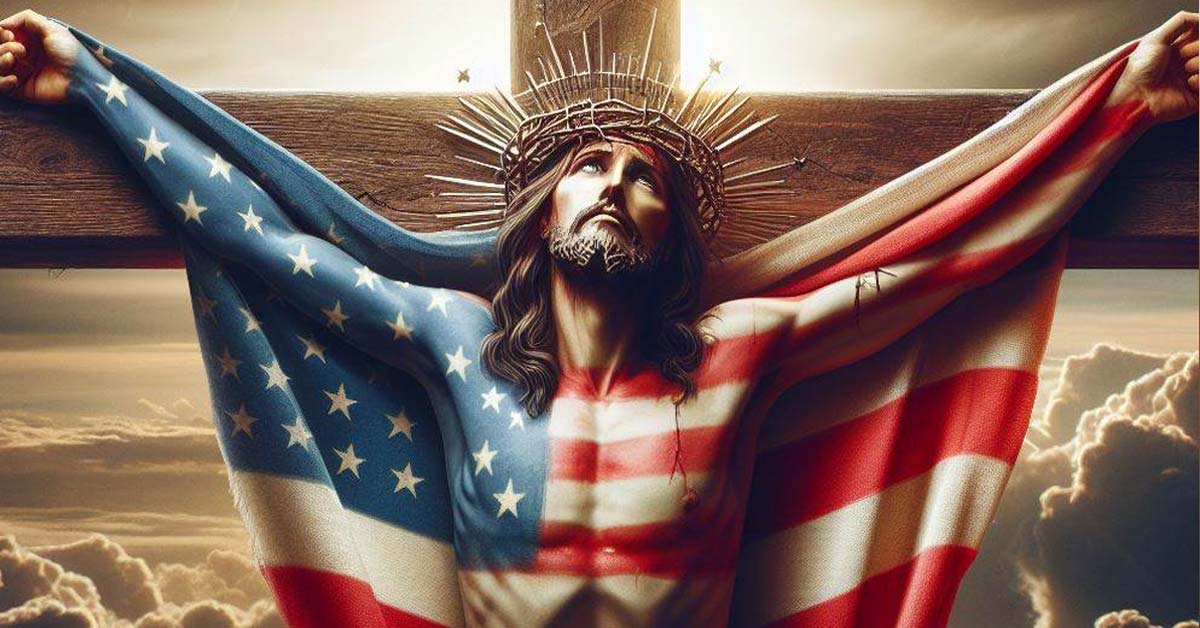
When we hear a person say that our country should be a Christian nation, it is worth asking that person to describe in more detail what he has in mind.
Should our Christian nation be Roman Catholic, Orthodox, Protestant, Pentecostal, or something else? If only one of these is ‘real’ Christianity, then what will we do with the other Christian expressions? And will Christians, once in power, govern our nation in the way they have governed their denominations and parachurches?
We also hear people saying that we are not electing a pastor or a saint, but rather a political leader. This implies that we need not elect a person who lives a moral or ethical life as defined by Christianity. However, in that case, what does the term “Christian nation” mean? If the leaders of a Christian nation need not embrace Christian morality or ethics, then what does this say about how we are defining Christianity?
In The Cave and the Light, Arthur Herman describes how Western Civilization has struggled to reconcile two ways of understanding things. Western people are temperamentally predisposed toward one of these two ways of viewing the world, though with maturity comes a growing appreciation for the opposite viewpoint. Throughout history, our culture has preferred first one approach and then the other, back and forth, without final resolution.
These two viewpoints involve either perceiving reality first as a whole and then breaking it into parts or, conversely, seeing it first as diverse parts that we then assemble into a whole.
Two ancient philosophers, Plato, and Aristotle, are the best-known representatives of these two points of view.
This unresolved see-saw lies at the heart of our current political and social antagonism.
We are divided, in other words, between whether our community should adapt to the beliefs and desires of the individuals who comprise it, or, whether instead individuals should adapt to the norms of the community. At one edge of this struggle, libertarians nearly eliminate the community. At the other extreme, communists nearly eliminate the individual.
Christian thought has been a reconciling influence between these Platonic and Aristotelian points of view because, from a Christian perspective, community encourages and develops individual personhood, just as healthy individuals develop and maintain community. To paraphrase Athanasius, “We neither divide the unity nor confuse the persons.”
The tensions of Western Civilization between the communal and individual perspectives, just as Herman asserts, have always existed in Western culture. However, they are becoming more intense because of the diminished influence of Christian thought. Indeed, this loss of Christian THOUGHT is not only a factor in Western culture but within the Christian Church itself. That is the reason politics has been replacing theology as the core belief system of professing Christians. In this way, many of us have been deconstructing Christianity by replacing the teachings of Jesus with secular, political thought.
I capitalized the word ‘thought’ in that last paragraph because Christian sentiment, which is also important, has, if anything, intensified.
Christians are largely uninformed however, about the unique ways of THINKING that their faith developed over the centuries. The notion that the three independent branches of American government, none of them sovereign over the other, might have something to do with the Christian belief that difference can coexist within unity, no longer occurs to them, for example.
There are many examples, perhaps much better than the one I just used from political theory, of how Christian thought has tempered and reinterpreted the culture we inherited from Greco-Roman antiquity. With the loss of Christianity, the culture – including much of Western Christianity — is returning to the winner-take-all, economically stratified, gladiator ethos that characterized the ancient world. Strangely enough, many are calling this revival of pre-Christian culture “Christian.”
It is interesting how other Western nations have navigated the loss of Christian influence. The Northern European nations secularized the communal values of our faith. It was as though they decided to enact the social vision of the Hebrew prophets and the Lord’s Sermon on the Mount but without the need for God or individual conversion. In our country, we have been trying to maintain our individual piety while rejecting the communal aspects of biblical faith.
Northern Europeans, in other words, have been trying to create healthy communities, roughly as defined by biblical values. Americans have been trying to create healthy individuals, also roughly as defined by biblical values.
Of course, unhealthy communities do not produce many healthy individuals.
Nor are unhealthy individuals capable of maintaining healthy communities.
Christianity requires Christ, Church, Canon, Creed, Conversion, and, finally life-giving Community. It does not survive as a vague movement of individuals individually connected to God while remaining disconnected from one another. The first word in the Lord’s prayer, after all, is “Our.”
The idea of electing unconverted leaders in a quest to make our nation ‘Christian’ erodes both the nation and the faith. The way nations are converted is the same way individuals are converted: “They will see your good works and glorify your Father who is in heaven.”
Christianity, in other words, grows through influence, not control. It offers a vision of full personhood within Unity and a Unity that contains diverse persons.
When this faith produces life-giving individuals, others often embrace it. When It doesn’t, there is no compelling reason why anyone should bother.
